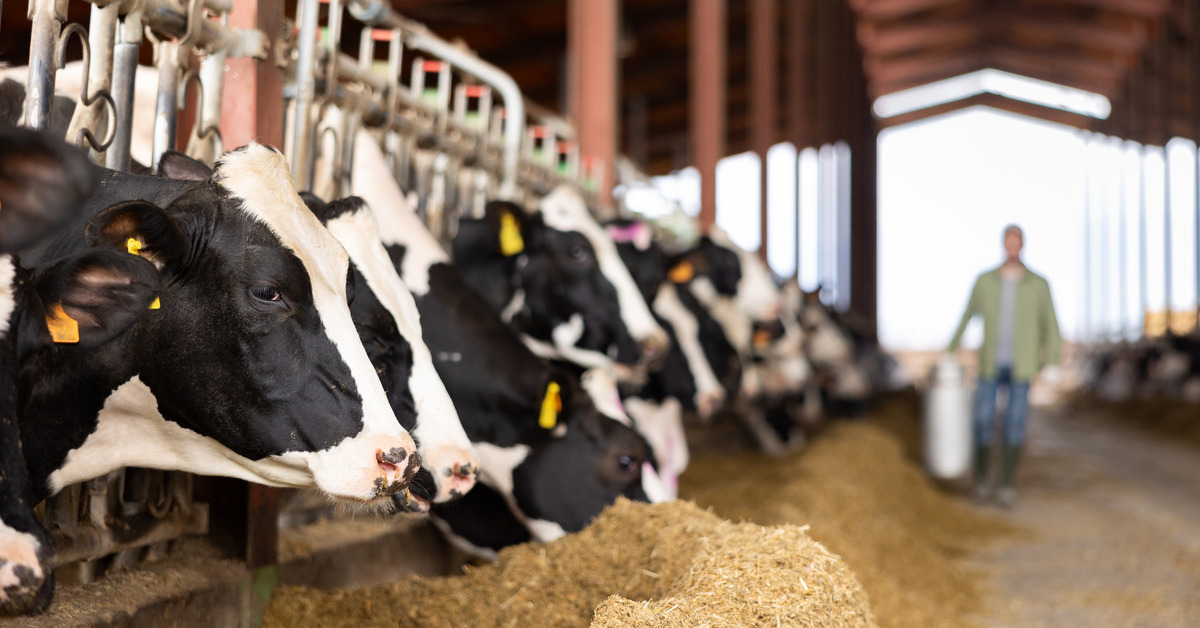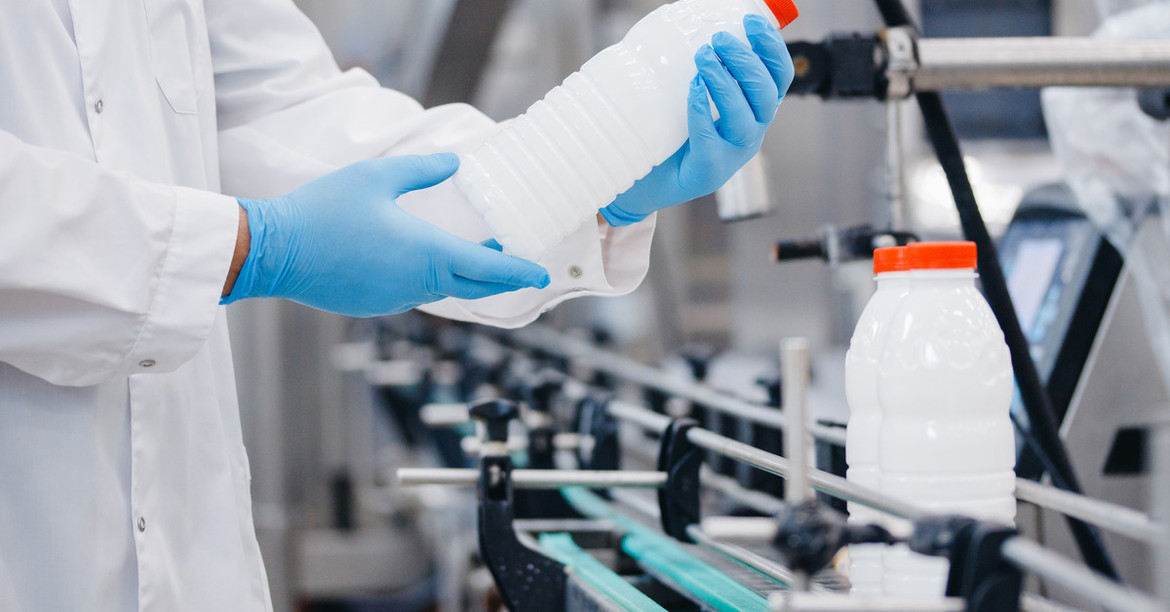3rd Oct 2024
The Importance of Data Collection in the Dairy Industry
Data collection is critical to any industry’s success, and the dairy industry is no exception. Accurate data collection allows dairy farmers and producers to track productivity, maintain quality control, and make informed decisions that lead to efficiency and profitability.
Data collection and analysis has transformed dairy operations, from monitoring herd health to tracking milk production. Understanding the importance of data collection in the dairy industry is essential for purchasing agents and inventory buyers who provide the equipment and tools necessary for optimizing these operations. Let’s explore the role of data in meeting consumer demands and learn why data collection matters in the dairy industry.
The Role of Data in Meeting Consumer Demands

Consumer preferences have shifted toward transparency and traceability in the food supply chain. Modern consumers want to know where their food comes from, how it was produced, and whether companies used sustainable practices.
Data collection in the dairy industry allows producers to meet these demands by providing detailed information on every step of the production process. Data collection creates room for transparency in the supply chain, from tracking the origins of feed to monitoring the storage and transport conditions of dairy products.
This transparency builds consumer trust and allows producers to market their products more effectively. Purchasing agents must stay informed about the latest traceability technologies that enable dairy farms to meet these evolving consumer demands.
How Data Collection Impacts the Dairy Industry
While consumer preferences have shifted toward data transparency, this trend also helps farmers and dairy companies run successful businesses. Let’s explore the many ways that data collection impacts the dairy industry.
1. Enhancing Milk Production Efficiency
The dairy industry relies heavily on optimizing milk production to achieve profitability. Data collection systems provide dairy farmers with detailed insights into every aspect of milk production, from individual cow performance to overall herd health. Farmers can track milk yield, analyze trends over time, and identify any issues impacting production.
Data allows for better feed management, fertility tracking, and labor efficiency, all of which are crucial in maintaining high production rates. Purchasing agents play a key role in sourcing the right data collection systems, such as automated milking equipment and sensors, that help farmers improve their production processes.
2. Monitoring Animal Health and Well-being
Animal health is the cornerstone of a successful dairy operation. Healthy cows produce more milk and contribute to a farm’s long-term sustainability. Farmers can closely monitor their herds’ health with the help of data collection systems.
Advanced tools such as wearable sensors and GPS collars collect real-time data on cow activity, temperature, and eating habits. This data allows farmers to detect early signs of illness, lameness, or fertility problems.
Farmers can reduce veterinary costs and minimize production disruptions by addressing health concerns before they escalate. Providing farms with the right health monitoring equipment will help farmers keep their dairy operations running smoothly.
3. Maintaining Quality Control and Safety Standards
Maintaining high-quality milk is essential for consumer safety and marketability. Data collection systems help dairy producers meet rigorous quality control standards by tracking every step of the production process.
Temperature sensors monitor milk storage conditions, helping products remain safe for consumption. In addition, data collected from milk sampling helps farmers detect contaminants and other potential hazards.
Inventory buyers help dairy farms access the right testing equipment and sensors. Therefore, they must stay informed about the latest advancements in quality control technologies and understand the basics of data collection in the dairy industry.
4. Managing Feed and Nutrition
One of the most significant expenses in dairy farming is feed management. Proper nutrition is crucial for maintaining a healthy herd and optimizing milk production. Data collection systems track feed intake, measure the efficiency of feed-to-milk conversion, and provide insights into how different diets impact production.
By analyzing this data, farmers can adjust feed rations to ensure their cows receive the right nutrients without overfeeding, helping reduce waste and lower costs. Acquiring feed monitoring tools and data analysis systems can help farmers optimize their feed management strategies for purchasing agents, improving profitability and animal welfare.
5. Improving Breeding and Genetics Programs
Breeding and genetics are fundamental components of dairy farming. Data collection is significant in enhancing these programs by tracking key performance indicators such as fertility rates, genetic traits, and reproduction cycles.
Advanced software programs use collected data to predict the best breeding times and identify cows with desirable genetic traits. This information allows farmers to make informed decisions that improve herd genetics over time, leading to healthier cows and increased milk yields.
Purchasing agents involved in sourcing breeding and genetics software contribute to the long-term success of dairy farms. Their work enables more accurate and efficient breeding practices.
6. Streamlining Farm Management and Operations

Data collection systems impact milk production and herd health and are significant to overall farm management. Managers can streamline operations and make informed decisions regarding labor, resource allocation, and equipment maintenance by integrating various data points from different areas of the farm.
Farm management software allows for the seamless integration of data related to feed, health, production, and finances. This centralized data collection makes it easier to monitor key performance metrics and optimize farm workflows. Offering comprehensive farm management systems to inventory buyers is essential for providing dairy farms with the tools they need to operate efficiently.
7. Reducing Environmental Impact
Sustainable practices and reducing environmental impact are growing concerns within the dairy industry. Data collection systems help farmers minimize their ecological footprint by monitoring water usage, waste management, and greenhouse gas emissions.
Tools such as manure management sensors and water usage meters collect data that enable farmers to optimize resource use, reduce waste, and comply with environmental regulations. Purchasing agents can contribute to the industry’s sustainability goals by sourcing eco-friendly data collection technologies that promote responsible farming practices.
The Future of Data Collection in the Dairy Industry
As you can see, it’s impossible to ignore the importance of data collection in the dairy industry. Data-driven insights are critical to the success of dairy operations, from improving the efficiency of milk production to maintaining quality control and animal health.
Dairy farms will rely more heavily on data collection systems to optimize their processes and meet consumer demands as technology advances. Staying informed about the latest innovations in data collection equipment is essential for purchasing agents and inventory buyers.
Inventory buyers help dairy farms thrive in a competitive and ever-evolving industry by sourcing the right products—whether it’s health monitoring tools, farm management software, or circular chart paper for quality control. The future of dairy farming is data-driven, and those who embrace this technology will stay equipped to meet the challenges ahead. Contact Recorders Charts & Pens today to find the ideal data collection supplies for your dairy business.

